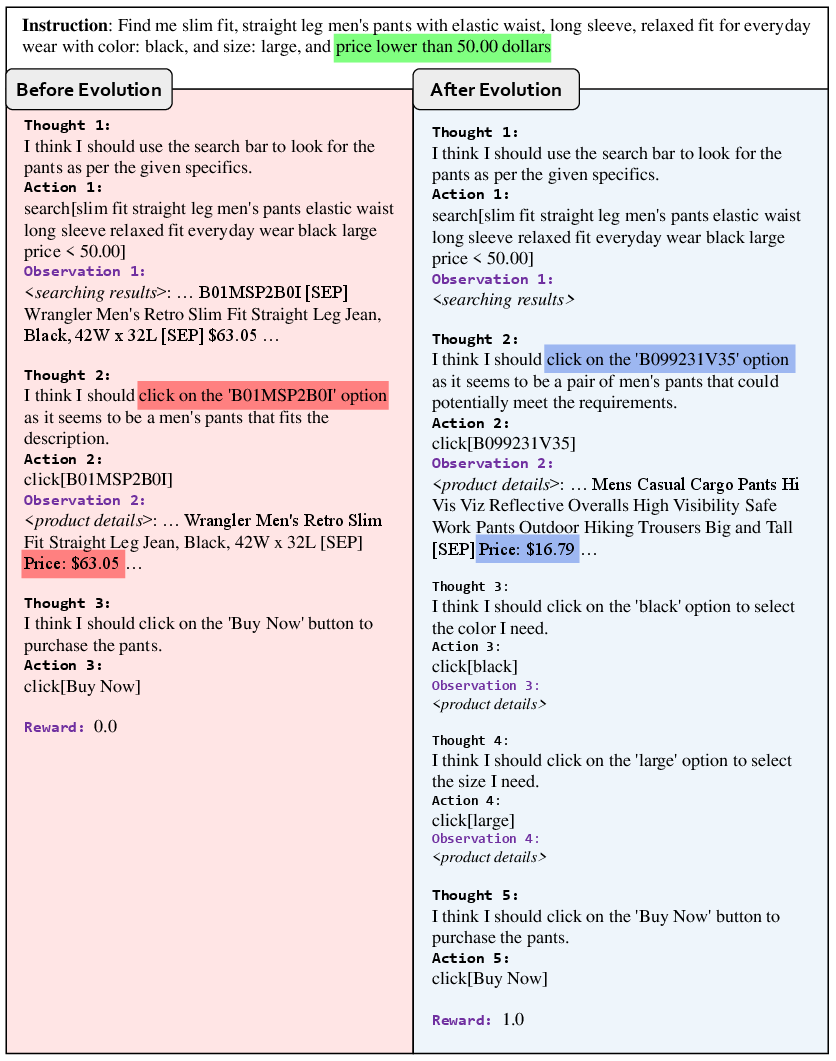AgentGym: Evolving Large Language Model-based Agents across Diverse Environments
Abstract: Building generalist agents that can handle diverse tasks and evolve themselves across different environments is a long-term goal in the AI community. LLMs are considered a promising foundation to build such agents due to their generalized capabilities. Current approaches either have LLM-based agents imitate expert-provided trajectories step-by-step, requiring human supervision, which is hard to scale and limits environmental exploration; or they let agents explore and learn in isolated environments, resulting in specialist agents with limited generalization. In this paper, we take the first step towards building generally-capable LLM-based agents with self-evolution ability. We identify a trinity of ingredients: 1) diverse environments for agent exploration and learning, 2) a trajectory set to equip agents with basic capabilities and prior knowledge, and 3) an effective and scalable evolution method. We propose AgentGym, a new framework featuring a variety of environments and tasks for broad, real-time, uni-format, and concurrent agent exploration. AgentGym also includes a database with expanded instructions, a benchmark suite, and high-quality trajectories across environments. Next, we propose a novel method, AgentEvol, to investigate the potential of agent self-evolution beyond previously seen data across tasks and environments. Experimental results show that the evolved agents can achieve results comparable to SOTA models. We release the AgentGym suite, including the platform, dataset, benchmark, checkpoints, and algorithm implementations. The AgentGym suite is available on https://github.com/WooooDyy/AgentGym.
Paper Prompts
Sign up for free to create and run prompts on this paper using GPT-5.
Top Community Prompts
Collections
Sign up for free to add this paper to one or more collections.


